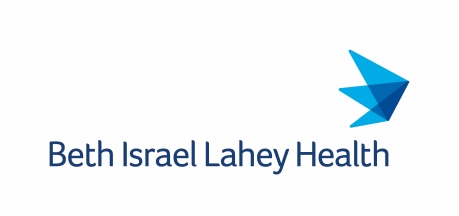Newswise — BOSTON – It’s estimated that one in 100 people in the United States are living with celiac disease, but there are only a handful of celiac centers throughout the country. In response to a growing need for educational materials, clinicians at Beth Israel Deaconess Medical Center’s Celiac Center have launched CeliacNow (celiacnow.org), a nutritional management website designed to maximize the health and wellbeing of people living with celiac disease and other gluten-related disorders. “We know that there are people all across the country who have very little access to the medical care available at a celiac center, so a lot of people are doing this on their own; they’re managing their nutrition and, frankly, trying to figure out their medical care, too,” says Daniel Leffler, MD, Director of Research at BIDMC’s Celiac Center, the only multidisciplinary center in New England specializing in the care of patients with celiac disease and gluten-related disorders.
“Our hope is to provide a comprehensive resource for celiac disease and non-celiac gluten sensitivity, and we’re starting with the nutritional component,” says Melinda Dennis, MS, RD, LDN, the Celiac Center’s Nutrition Coordinator.
Dennis, a nationally recognized expert in celiac nutrition, developed the CeliacNow website with Real Life with Celiac Disease co-author, Leffler, and Ciaran Kelly, MD, a gastroenterologist and the Medical Director of the Celiac Center. The site will be continually updated with new nutrition information and will grow over the coming year as extensive medical information on celiac disease is added.
Celiac disease is a genetic, autoimmune disease that affects digestion, causing inflammation that can damage the small intestine and interfere with nutrient absorption. Symptoms vary widely and range from gastrointestinal discomfort to skin rash to irritability and fatigue. Untreated celiac disease can lead to infertility, osteoporosis, iron deficiency, anemia and other more serious complications. Treatment involves the complete elimination of gluten, a protein found in wheat, rye and barley. It sounds simple, but in practice it’s much more complicated.
“We want people to come to the site to learn what they need to know about living with celiac disease or gluten sensitivity and what foods to avoid and what foods to choose,” said Dennis. She says the site can also help people educate themselves about the potential nutritional pitfalls inherent in the gluten-free diet unless it’s done correctly.
“Nobody gets enough fiber in his diet, but it can be a real problem on the gluten-free diet” says Dennis. “And if you’re choosing the refined or processed route of going gluten free, which is so convenient and makes a lot of sense when you’re just starting out, it’s easy to end up with vitamin and mineral deficiencies – B vitamins, calcium, vitamin D, iron and magnesium – and that can lead to other health problems.”
The CeliacNow site can be navigated at three levels to appeal to different readers. Level one offers basic information in an outline format. Level two builds on that knowledge and will suit the average learner. Level three offers more complex information for those who want to understand the subject in greater depth.
“We’ve distilled our combined knowledge and experience from working with hundreds of patients with celiac disease and gluten intolerance over many years into this website” says Kelly. “So, whether a visitor to the site is newly diagnosed, has been living celiac disease for a long time or is a clinician helping a patient manage their disease, we want users to be able to pick a level that makes the most sense to them.” CeliacNow is funded by the Sidney E. Frank Foundation. The site will expand in the spring of 2013 with a detailed medical management section, research studies, news and events, and more nutrition topics, such as supplements, meal planning, food intolerances and associated conditions such as diabetes.
“The Sidney E. Frank Foundation is delighted to support this important effort to provide practical, up-to-date information about this least-diagnosed and most pervasive disease to the celiac community,” says Cathy Frank Halstead, Trustee, Sidney E. Frank Foundation. “We are confident that the site will help many people to better address their own conditions or those of their loved ones. Even those with unspecified ailments often profit from a celiac diet.”
Beth Israel Deaconess Medical Center is a patient care, teaching and research affiliate of Harvard Medical School, and currently ranks third in National Institutes of Health funding among independent hospitals nationwide. BIDMC is clinically affiliated with the Joslin Diabetes Center and is a research partner of Dana-Farber/Harvard Cancer Center. BIDMC is the official hospital of the Boston Red Sox. For more information, visit www.bidmc.org.
